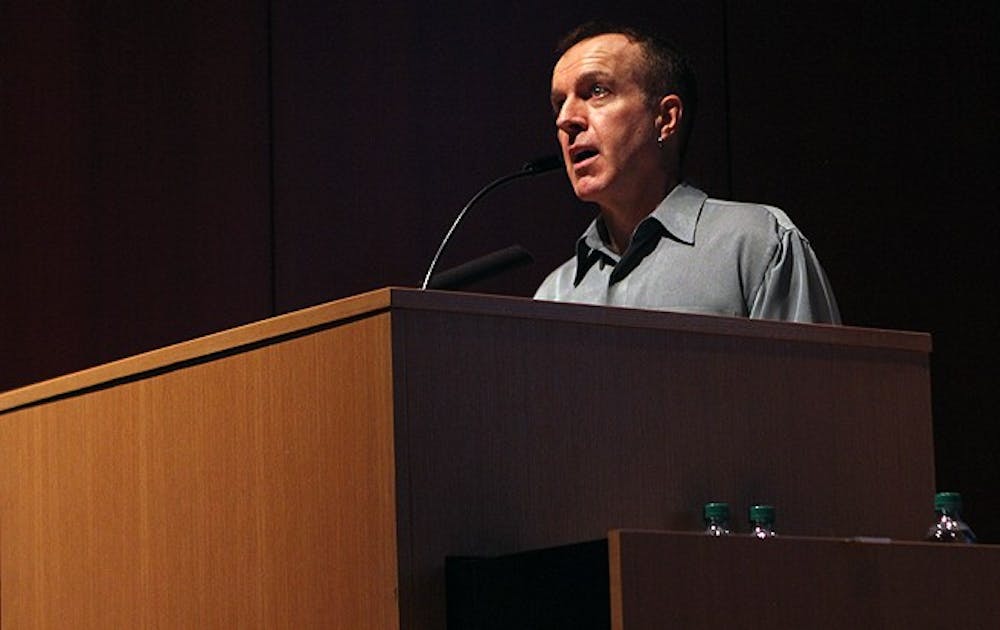Environmental theorist Rob Nixon argued in a talk Wednesday that destructive treatment of the environment constitutes a form of violence that gradually acts against the people who rely upon the land.
Slow violence, defined as an understated violence with delayed repercussions, poses challenges to environmental action because its effects are hard to observe, said Nixon, Rachel Carson professor of English at the University of Wisconsin-Madison. He delivered the talk “Slow Violence and the Environmentalism of the Poor” as the 2013 John Hope Franklin Humanities Institute Annual Distinguished Lecture at the Nasher Museum of Art.
“One of the pressing challenges of our age is how to adjust our rapidly eroding attention spans to the slow erosion of the environment,” he said.
He added that only sensationalized violence gains media attention, while less obvious violence, such as environmental violence, fails to make headlines. This has created multiple situations with lasting, harmful consequences. Nixon cited the use of Agent Orange, an herbicide used for chemical warfare in Vietnam, and the insecticide DDT.
“How in these circumstances can we convert [slow violence] into image and narrative disasters?” he asked.
Nixon answered with an example of the Maldives, a micronation of islands in the Indian Ocean that is projected to be one of the first nation states to be completely submerged by water as a result of global climate change. To bring international attention to their situation, then-President of the Maldives Mohammed Nasheed held an underwater cabinet meeting where the ministers met in scuba gear to sign climate change legislation.
He emphasized that slow violence often occurs at the expense of the poor or indigenous populations, as seen in the Niger Delta. The poorer indigenous population resisted foreign oil companies’ control over their homeland and related environmental exploitation of the land.
“We often go through our lives not really thinking,” said Erika Weinthal, associate professor of environmental policy and associate dean for international programs. “It’s what we do in our everyday life through our normal consumption that affects many other people along the way.”
Beth Perry, program director at the John Hope Franklin Humanities Institute, said this was a significant talk for the Duke student body specifically.
“When you think about what students go on to do after they leave Duke, I think [this] is an extremely important message for Duke students to hear simply because so many of them end up in a position of leadership,” she said.
Get The Chronicle straight to your inbox
Signup for our weekly newsletter. Cancel at any time.

